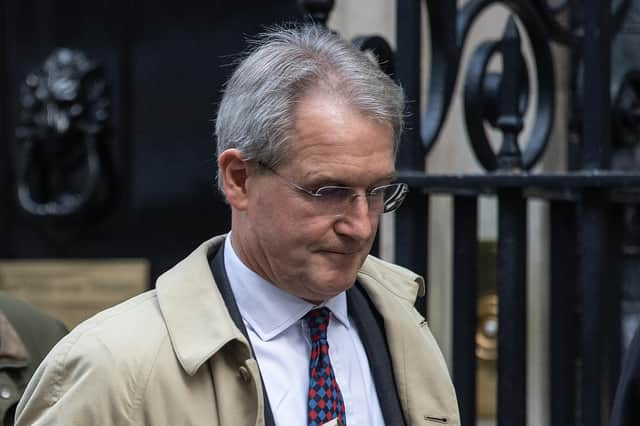Owen Paterson affair underlines the need for MPs to act as our elected representatives, not paid lobbyists – Scotsman comment


Rather than represent the interests of those who give them large amounts of money, their job is to speak up for their constituents and to act in their interests.
Following an investigation by the Parliamentary Standards Commissioner, the Westminster Committee on Standards, found that Owen Paterson, the Conservative MP for North Shropshire, was responsible for an “an egregious case of paid advocacy” in which he “repeatedly used his privileged position to benefit two companies for whom he was a paid consultant”.
Advertisement
Hide AdAdvertisement
Hide AdA statement issued by the committee noted that “no previous case of paid advocacy has seen so many breaches or such a clear pattern of behaviour in failing to separate private and public interests” and added that Paterson’s financial remuneration from the two companies “amounted to nearly three times his annual parliamentary salary”.
In a statement announcing his resignation as an MP, Paterson insisted he was “totally innocent of what I have been accused of and I acted at all times in the interests of public health and safety”.
The committee also noted his denials, but said his defence – that his “14 approaches to ministers and public officials were all attempts to avert a serious wrong rather than to favour [the companies] Randox and Lynn’s” – “stretches credulity”.
The Conservative party’s initial reaction to the findings of the commissioner and the committee findings stretched credulity in a different way.
MPs voted to block Paterson’s punishment – a brief suspension – and backed changes to the way their conduct is governed, suggesting the process was to be made less robust.
It was only after near-universal condemnation by the press that a spokesperson for Boris Johnson said the Prime Minister had “changed his mind” and it was announced that MPs would vote again on Paterson’s suspension, prompting his resignation.
Scandals over “Cash for Questions”, MPs’ expenses and the like have helped to create a popular image of politicians as greedy and self-interested. This may be far from the truth, but if the public are to have faith in democracy they need to be assured that those they elect are public servants, not paid lobbyists.
So it may be that reform of the system is required – but to make it tougher, not weaker.
A message from the Editor:
Thank you for reading this article. We're more reliant on your support than ever as the shift in consumer habits brought about by coronavirus impacts our advertisers.
If you haven't already, please consider supporting our trusted, fact-checked journalism by taking out a digital subscription.
Comments
Want to join the conversation? Please or to comment on this article.
